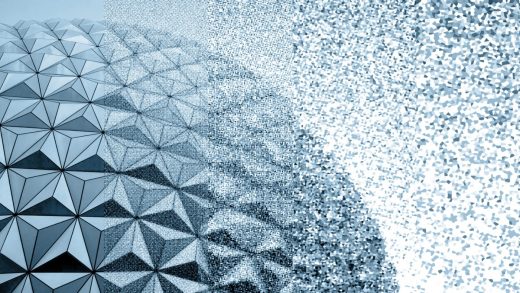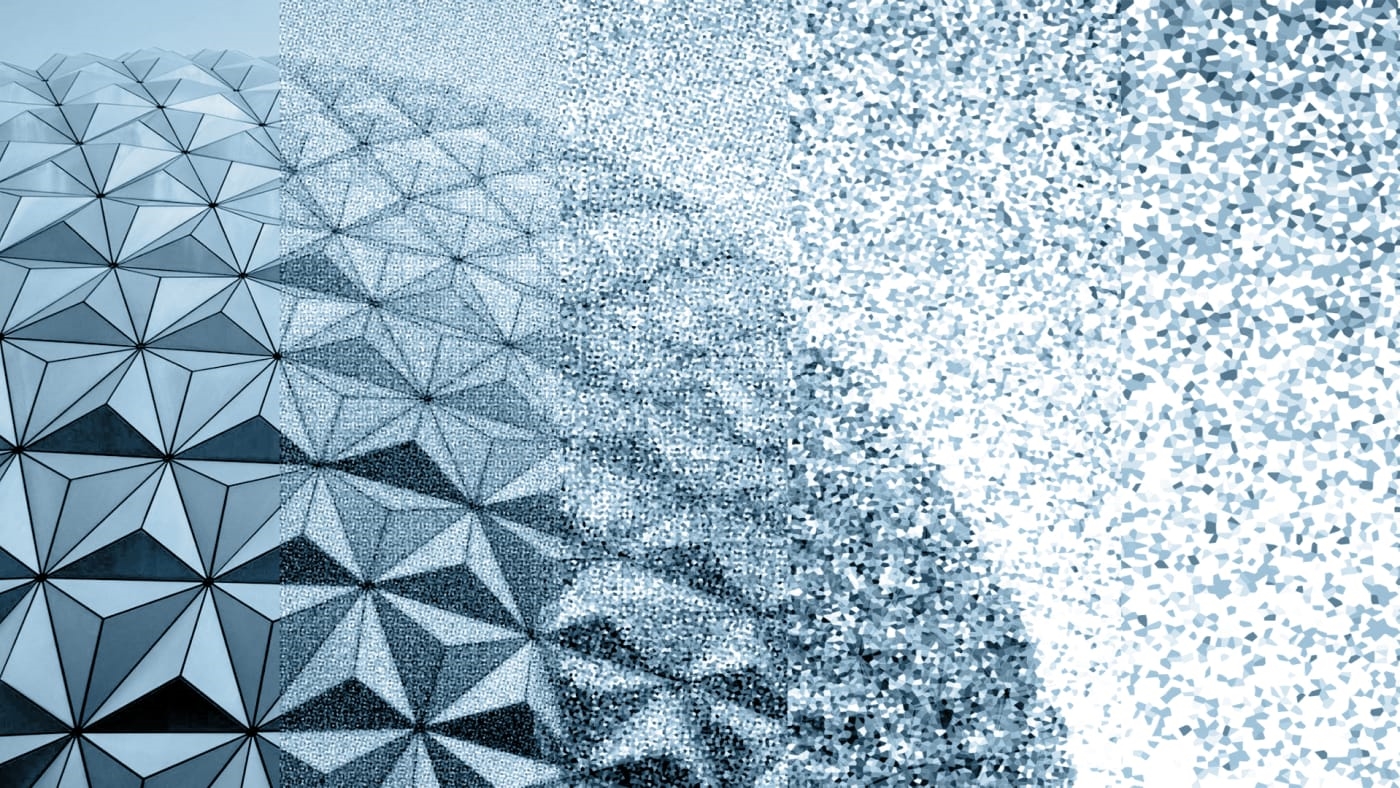My three decades at Disney taught me not to fear automation
At a recent conference in Hyderabad, India, I was given second billing to a robot. Not just any robot, mind you, but Sophia, the AI sensation from Hansen Robotics, which has recently been headlining events all over the world. Adding insult to injury, my presentation on creativity and human ingenuity was scheduled to follow directly after the robot. Given the electricity in the air as Sophie prepared to make her entrance, I felt terrified of being eclipsed by a machine.
It’s an increasingly common terror lately. One recent study by Oxford and Yale University researchers suggests that by 2053, robots will beat us at translating languages, writing essays, and conducting surgeries. Worst of all, they expect all human jobs to be automated within the next 120 years.
Disney is by no means averse to technology. In fact, one of the company’s newer high-tech solutions, the Magic Band, uses RFID technology to let guests reserve their favorite attractions and purchase merchandise, and it also doubles as a room key and entrance ticket to the parks. In addition to improving the guest experience (no waiting in lines!), the Magic Band provides a wealth of data to improve real-time operations and plan future products and services. But in my 30 years at Disney, in all the innovative ways I saw technology being deployed, I never witnessed it beat out human ingenuity.
As I stood backstage watching the audience watching Sophia, I found–to my surprise (and selfish delight)–that the crowd’s initial wonder and awe soon turned into nervousness, then visible fear. Sophia was remarkable for everything she could do, but worrisome for everything she seemed to represent for the future of humanity. When I took the stage to remind the attendees of the magic of human creativity and imagination, there was a palpable sense of relief.
The experience, which I will repeat soon in Guatemala, helped reinforce my conviction that robots, big data, and AI, as disruptive and extraordinary as they are sure to be, will never be able to compete with human intuition and the unique and mysterious combination of elements that constitute our emotional intelligence.
Sophia is only the beginning, a primitive prototype of what will no doubt become a big part of our lives within a few short years. Soon, we are told, robots will be writing best-selling novels, composing symphonies, and producing great works of art. Perhaps. Even so, my gut tells me that there is still plenty of room for, well, my gut!
I am reminded of one of the many extraordinary experiences I had in my 30 years at Disney. In 2010, the Disney Parks team was looking for ideas for the future of Downtown Disneyland in Florida. Four of the world’s top architectural firms presented their concepts. The first three were spectacular, futuristic designs that had clearly cost the firms thousands of dollars to create. The final presenter, however, brought no props, no scale models. Instead, he told us to close our eyes, then painted an enchanting picture in our minds of what the future would bring. His was the winning bid. He had understood that Disney is all about the power of storytelling, about capturing the imagination. No assembly or high-tech wizardry required.
Working at Disney taught me to appreciate the limitlessness of the human imagination. Did you have a monster in your closet when you were a kid? That’s a human experience hard to imagine robots conceiving of or relating to in the way Disney/Pixar did in 2001 by producing Monsters Inc. It’s the storytelling in particular–which pairs big, cuddly Sulley and one-eyed, wise-cracking Mike Wazowski as the top scare team at the scream-bottling plant in Monstropolis–that lends the film its genius. And it’s a human genius, one that draws on and reflects the human condition in order to tug at our heartstrings.
For as long we’ve been around, humans have sought to express the mysteries of love and companionship, in song, verse, prose, art, film, and more. While robots will surely enhance our abilities and our senses, they can’t yet feel our emotions, nor match the creativity that those emotions spawn.
In another project at Disney, my team and I were tasked with solving a vexing problem: British tourists were not coming to Disneyland Paris in the droves we had expected. Disney had reams of market research data on British families, their vacation habits, their tastes, their fears, their aspirations. We’d developed brilliant ad campaigns designed to exploit that data. And we had survey after survey of Brits telling us that they’d love to visit Disneyland. But still they did not come.
So, like Sherlock Holmes, we set off for London, Sheffield, and Liverpool to find out why. We visited the dozens of homes of families that the data told us were ideal Disney consumers. After hundreds of hours of interviews and observations, we discovered a clue that led to some creative thinking. In almost every home, we found photos of kids and grandkids. Almost inevitably, the photos were anywhere between 5 and 20 years old. What these portraits told us was how hard it is for parents to let their children grow up.
We brainstormed. We identified three key transition points in children’s lives that all parents dread: age 8–9, when kids stop believing in Santa; age 13, when daughters stop holding daddy’s hand in public; and ages 17–18, when parents drop their kids off at college for the first time. With these very human insights, we designed a campaign aimed at parents that portrayed Disneyland as a place where kids continue to believe, where they hold your hand, and where the whole family can experience the magic together. Traffic to Disneyland Paris from the U.K. soared. Big data was no match for finely tuned human intuition.
There’s no doubt that Sophia’s more advanced cousins will generate hit pop songs and maybe even write killer screenplays, but they will never be able to reach into our hearts as only human storytellers can do. Human ingenuity, creative problem solving, and critical thinking will only become more valuable, not less, as the ranks of robots swell. Faced with the rising tide of automation, I’d keep betting on imagination any day. Bring it on, Sophia!
Duncan Wardle is the former head of creativity and innovation at the Walt Disney Company. He currently delights audiences all over the world, giving them tools to tap into their best creative selves.
(11)



